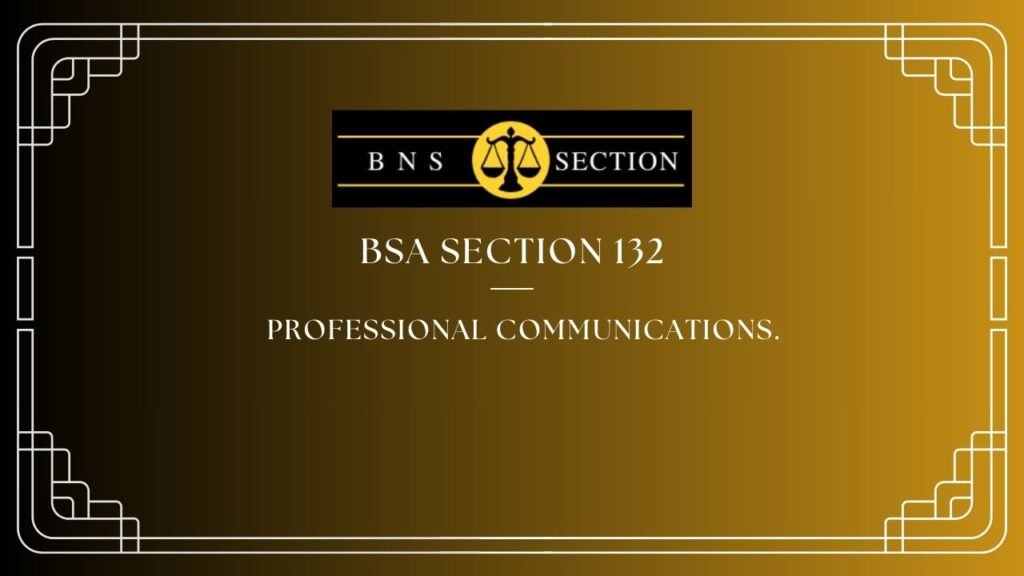In this article, we will introduce you to Bharatiya Sakshya Adhiniyam Section 132. In today’s article we will talk about what is Bharatiya Sakshya Adhiniyam (BSA Section 132)?
The Bharatiya Sakshya Adhiniyam, 2023 aims to unify and establish standardized rules and principles of evidence to ensure fair trials in criminal cases. The previous Indian Evidence Act has become outdated and does not adequately address the requirements of the modern era. This new Bill intends to overhaul the evidence laws by updating them to reflect current public needs and aspirations.

Definition of Bharatiya Sakshya Adhiniyam (BSA) Section 132
Professional communications- (1) No advocate, shall at any time be permitted, unless with his client’s express consent, to disclose any communication made to him in the course and for the purpose of his service as such advocate, by or on behalf of his client, or to state the contents or condition of any document with which he has become acquainted in the course and for the purpose of his professional service, or to disclose any advice given by him to his client in the course and for the purpose of such service:
Provided that nothing in this section shall protect from disclosure of-
- (a) any such communication made in furtherance of any illegal purpose;
- (b) any fact observed by any advocate, in the course of his service as such, showing that any crime or fraud has been committed since the commencement of his service.
(2) It is immaterial whether the attention of such advocate referred to in the proviso to sub-section (1), was or was not directed to such fact by or on behalf of his client.
Explanation- The obligation stated in this section continues after the professional service has ceased.
Illustrations
- (a) A, a client, says to B, an advocate- “I have committed forgery, and I wish you to defend me”. As the defence of a man known to be guilty is not a criminal purpose, this communication is protected from disclosure.
- (b) A, a client, says to B, an advocate- “I wish to obtain possession of property by the use of a forged deed on which I request you to sue”. This communication, being made in furtherance of a criminal purpose, is not protected from disclosure.
- (c) A, being charged with embezzlement, retains B, an advocate, to defend him. In the course of the proceedings, B observes that an entry has been made in A’s account book, charging A with the sum said to have been embezzled, which entry was not in the book at the commencement of his professional service. This being a fact observed by B in the course of his service, showing that a fraud has been committed since the commencement of the proceedings, it is not protected from disclosure.
(3) The provisions of this section shall apply to interpreters, and the clerks or employees of advocates.
